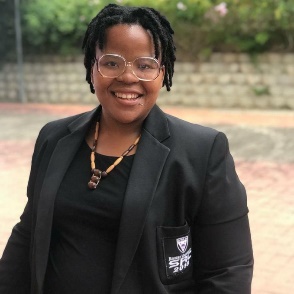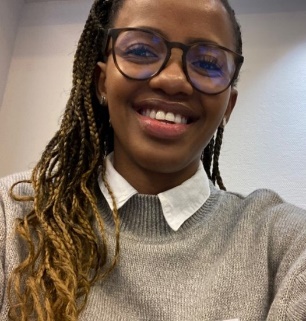Democracy Development Program (DDP) in partnership with the Mail & Guardian on Thursday, 11 August, hosted a live webinar to reflect on issues related to political representation, economic emancipation and the framework for decreasing the scourge of femicide and gender-based violence (GBV).
Commemorating the 1956 march to Union Buildings
The theme was: ‘Women’s visibility in South Africa’, and it was held as part of the Women’s Day commemoration of this year’s 66th anniversary of the defiance march by more than 20,000 women on the Union Buildings in Pretoria. In keeping with the spirit of Women’s Month, the line-up of speakers comprised four dynamic women who made engaging and insightful presentations on what interventions can be made to ensure women are visible in their respective spheres of influence.
Londiwe Mtambo, a programme manager at Rivonia Circle, who holds a Master’s degree specialising in feminist theory, African girlhood and womenhood and security studies, adroitly moderated the conversation.
Presenters
Lihle Ngcobhozi, a lecturer in public governance, public policy and gendered approaches to development at WITS School of Governance;
Nhlakanipho Mahlangu, activist pursuing a Masters of Commerce in Business Management: intersecting relationship management with questions of LGBTQ inclusion. She also serves as a research intern at Centre for the Advancement of Non-Racialism and Democracy (CANRAD) at Nelson Mandela University; and
Hleliwe Khumalo a PhD candidate in Community Development Studies at the University of KwaZulu-Natal and an Andrew Mellon Fellow.
Increasing GBV incidents
South Africa has made considerable progress to ensure that women are able to take part in political, economic and other decision-making processes. But whatever progress has been recorded, has been overshadowed by consistent reports of GBV and femicide across the country.
 Londiwe Mtambo
Londiwe MtamboThese horrific acts not only constitute serious human rights violation but also raise grave concerns around the health and well-being of all women. According to the South African Medical Research Council, every eight hours a woman is killed by an intimate partner or close relative in South Africa. This highlights and emphasises the need for more effective interventions to make sure that women feel safe and protected.
The webinar took place against the backdrop of the brutal sexual violations of eight women by illegal miners in Krugersdorp.
Gender governance
The primary focus of Ngcobozi’s presentation was based on the concept of gender governance and how it is shaping up in South Africa. She critically analysed and interrogated how the state or public institutions interact specifically with women; whether the state is really doing what it is supposed to do in relation to women’s position at the level of representation and at a substantive level.
 Lihle Ngcobhozi
Lihle Ngcobhozi She also examined the extent to which women engage with state institutions and the kind of access they have to them. The other key question Ngcobozi looked at is whether the state governs in a way that prioritises women or understands different intersecting issues that women wrestle with, be they economic, political, sex and sexuality, or others.
“Gender governance is really about where and how government places women within its state of governance and how or where it places women within its modes of governance. What kind of instruments, policy direction or decision it makes to ensure it integrates women in its mode of governance,” said Ngcobozi.
She said gender governance requires the state to be specific in understanding different vantage points — how different women in the country experience their womanhood whether it is from a class, race, income, gender and sexuality perspective.
Drawing on feminist scholars, Ngcobozi said the state is widely seen as a masculine entity which relies on structural violence to preserve and legitimise itself. She said the current conception of state inherently marginalises and pushes women to the periphery of society. Ngcobozi said according to social democratic understanding, this represents a serious shortcoming of the state which can be addressed by re-configuring it in a way that is sensitive to the demographics over which it presides.
She acknowledged that the government has introduced progressive laws such as gender equality, women representation, women empowerment and affirmative action to change the status of women. However, she argued these have limited success and impact as women still lag behind their male counterparts in a number of areas.
Ngcobozi also noted that while it is vital to confront GBV and femicide as part of dominant discourse, attention should also be on many other forms of systemic violence against marginalised communities, notably LGBTQ communities.
LGBTQ movements
Mahlangu looked at the roles of various LGBTQ movements and the gaps that exist between the laws and realities of the LGBTQ communities. She said movements such as Glow, #Totalshutdown and Fees Must Fall have played a critical role in foregrounding the need to understand marginalised gender experiences in ways that are inclusive.
 Nhlakanipho Mahlangu
Nhlakanipho Mahlangu She argued that these movements did not focus solely on women but also on the rich intersections, particularly in the LGBTQ space. She said that the LGBTQ movements have a circular relationship with the law, adding “we run to the law for particular changes such as Civil Union Act” which is widely seen within the LGBTQ circles as the stepping stone towards changing the culture of society. But she argued that these positive legal developments take place in the context of unabating brutal violence and constant fear.
Mahlangu highlighted gaps between the law and the lived realities, saying laws do not necessarily change the culture of society. “We don’t co-exist with laws or strategies, but we co-exist with people and prevailing cultures.”
There are some civil society organisations, she said, that try to make inclusivity a lived experience of the LGBTQ communities; however, these bodies are grossly under-funded to implement these goals.
Mahlangu recommended a business management approach as one way in which LGBTQ inclusion could be attained. She called on everyone in their circle of influence to work towards building sustainable strategies to meaningfully impact culture and thereby positively change LGBTQ experiences.
Gender transformative approach
Khumalo prefaced her presentation by lamenting the increasing incidents of GBV in the country, citing the Krugersdorp gang rape incident as a grim reminder of how insecure women are. She also referenced a recent Interpol report which characterised South Africa as the rape capital of the world.
 Hleliwe Khumalo
Hleliwe Khumalo Khumalo said GBV is a complex phenomenon that requires multiple and indigenously informed interventions. She shared some of her research outcomes and the existing frameworks that communities and women can leverage to address GBV and femicide. She said the range of intervention strategies that have been deployed so far proved to be ineffective partly because they exclude men.
She said what is needed is a gender transformative approach that challenges entrenched social norms and stereotypes that perpetuate gender inequality, GBV and femicide.
As part of the approach, she identified male initiation as one of the strategic social institutions that can be re-purposed and refined to provide effective education to boys. Academics, politicians and traditional leaders can come on board as mentors and role models to teach boys not to see women as sex objects but as equal social partners. Khumalo stressed that the main objective of this approach is to target attitudes and change behaviour as well as motivate boys to desist from toxic masculinity and harmful patriarchal practices.
For more information on Democracy Development Program, visit https://www.ddp.org.za/#/home